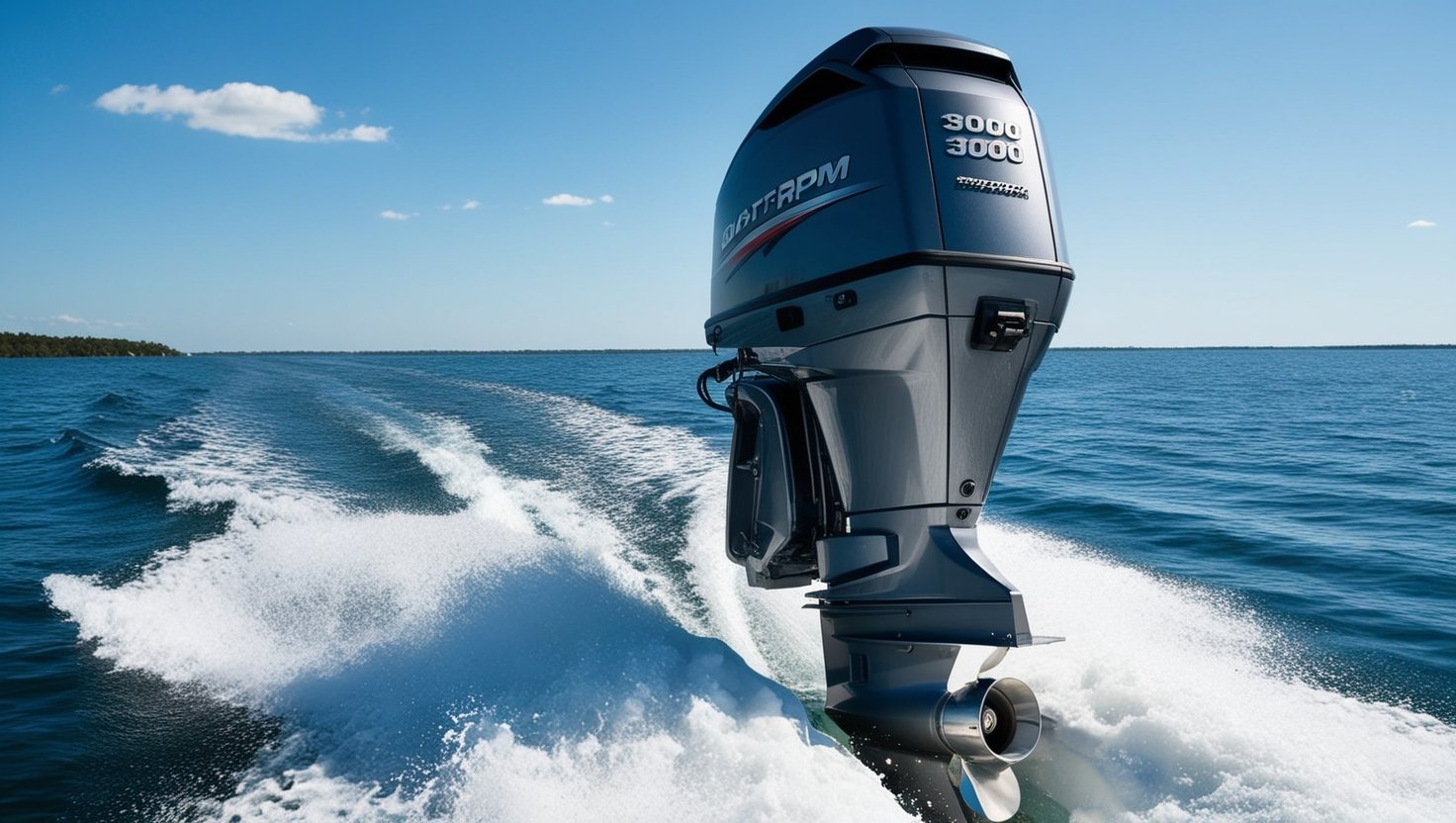
Bot won’t go over 3000 RPM under load – what to know
When a boat engine struggles to go beyond 3000 RPM under load, it’s a sign that something isn’t working as it should. This problem is not uncommon and can be frustrating, especially when you are on the water and unable to reach the level of performance you expect. There are several possible causes, and understanding them can help you troubleshoot and resolve the problem effectively.

Understanding the Basics of Boot Engine Performance
Before diving into specific issues, it’s important to understand how a boat engine should operate under normal conditions. Revolutions per minute (RPM) tell how fast the engine is running, and in general, most boat engines should operate under load at wide open throttle (WOT) within the range of 4500 to 6000 RPM. If your boat is maxing out at 3000 RPM, it is significantly underperforming, and several factors may be at play.
Possible Causes of Low RPM Under Load
FUEL SUPPLY PROBLEMS
One of the most common causes of low RPM under load is insufficient fuel supply. This problem can be caused by a number of sources, such as a clogged fuel filter, a faulty fuel pump, or even dirty or contaminated fuel. When the engine doesn’t get enough fuel, it won’t be able to produce the power necessary to reach high RPMs.
Clogged Fuel Filter A fuel filter that is clogged with debris can restrict fuel flow to the engine, causing it to starve and thus limit RPMs. Regular maintenance including changing the fuel filter is essential to avoid this problem.
Faulty Fuel Pum The fuel pump is responsible for delivering fuel from the tank to the engine. If it’s bad, the engine won’t get enough fuel, especially under load, which can cause RPM to drop.
–Contaminated Fuel Water or other contaminants in your fuel can cause poor engine performance. It is very important to ensure that your fuel is clean and free of any impurities.
PROPELLER PROBLEMS
The propeller plays an important role in your boat’s performance, and any problem with it can directly affect your RPMs.
Incorrect Propeller Size or Pitch If the propeller size or pitch is not suitable for your boat, it can cause the engine to struggle to reach high RPMs. A propeller with too much pitch will overload the engine, preventing it from reaching its full RPM potential.
Bad Propeller A bad or bent propeller can also cause cavitation, reducing boat performance and limiting engine RPM under load. Regular inspection and maintenance of the propeller is very important.

Ignition System Problems
Problems with the ignition system can also lead to low RPM under load. If the engine is misfiring or misfiring, it will not reach the desired RPM level.
Broken Spark Plugs Spark plugs that are corroded or dirty can cause misfires, reducing RPM. Regularly checking and replacing spark plugs can help keep the engine running at its best.
Faulty Ignition Coils Ignition coils are responsible for providing a spark to the spark plug. If they are not working properly, it can result in poor engine performance and low RPM.
Air Intake Problems
An engine needs a proper mixture of air and fuel to run efficiently. If there is a problem with the air intake system, it can cause the engine to run rich or lean, affecting RPM.
Clogged Air Filter A clogged air filter can restrict airflow to the engine, causing it to run rough and reduce RPM. Regular inspection and cleaning or replacement of the air filter can prevent this problem.
Bad Mass Airflow Sensor The mass airflow sensor measures the amount of air entering the engine and adjusts the fuel injection accordingly. If it’s bad, the engine can’t get the right air-fuel mixture, causing performance problems.
Exhaust System Restrictions
An engine’s exhaust system needs to get the gases out efficiently to perform at its best. Any restriction in the exhaust system can cause back pressure, which reduces the engine’s ability to reach high RPM.
Clogged Exhaust Manifold A clogged exhaust manifold can prevent exhaust gases from escaping, causing the engine to work harder and limit RPMs.
Broken or Clogged Muffler If the muffler is clogged or damaged, it can create excessive pressure on the back, affecting engine performance and RPM.
Mechanical Problems
Internal mechanical problems in the engine can also cause a decrease in RPM under load.
Low Compression Low compression in one or more cylinders can result from problems with piston rings, valves, or head gaskets. Low compression means the engine cannot produce

1 What are the main advantages of using renewable energy sources over fossil fuels?
Renewable energy sources, such as solar, wind, and hydropower, offer several significant advantages over fossil fuels. They greatly reduce greenhouse gas emissions, which reduces the impact of climate change. Additionally, renewable energy is sustainable, meaning it will not run out like fossil fuels. These sources also help reduce air and water pollution, improving overall public health. Finally, renewable energy can lead to greater energy independence, reducing dependence on imported fuels and stabilizing energy prices.
2 How can regular physical activity improve mental health?
Regular physical activity significantly improves mental health by reducing symptoms of depression, anxiety, and stress. Exercise promotes the release of endorphins, which are natural mood lifters. It also helps improve sleep patterns, which can be affected by stress or depression. Additionally, engaging in physical activity can boost self-esteem, enhance cognitive function, and provide opportunities for social interaction, all of which contribute to better mental well-being.
3 What strategies can businesses use to increase customer loyalty?
Businesses can increase customer loyalty by focusing on personalized customer experiences, ensuring consistently high-quality service, and engaging in regular contact with customers. Implementing loyalty programs that reward repeat customers is also effective. Additionally, actively seeking and acting on customer feedback demonstrates that the business values its customers’ opinions. Providing exceptional customer support and creating a sense of community around the brand can further strengthen customer loyalty.
4 Why is financial literacy important for young adults?
Financial literacy is very important for young adults because it equips them with the knowledge and skills needed to effectively manage their finances. Understanding budgeting, saving, investing, and the responsible use of credit helps young adults make informed financial decisions that can lead to financial stability and independence. Financial literacy also prepares them for long-term financial planning, such as saving for retirement, buying a home, or investing in their education, ultimately reducing the likelihood of debt and financial stress
